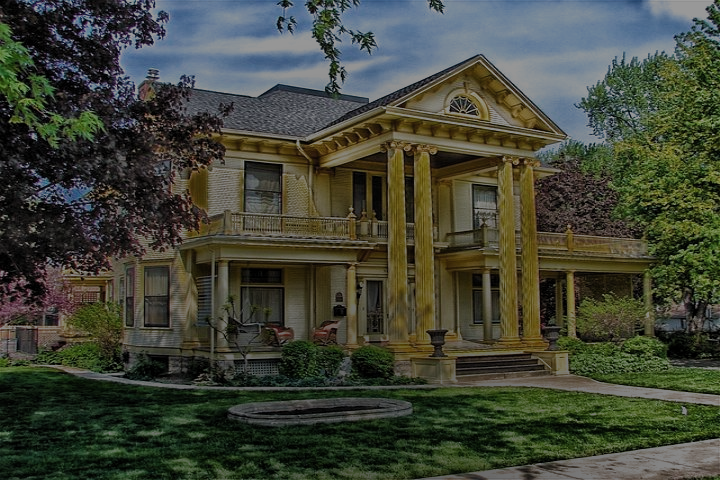Best Permaculture Gardens in Saint-Denis: Sustainable Living
Saint-Denis is an area famous for its permaculture gardens. Permaculture promotes a sustainable lifestyle based on natural systems. In this article, we’ll explore the best permaculture gardens available in Saint-Denis.
Toc
- 1. 1. Garden Name 1
- 2. 2. Garden Name 2
- 3. 3. Garden Name 3
- 4. The Importance of Permaculture for Sustainable Living
- 5. 1. Eco-nursery and Research Center
- 6. 2. City Gardens
- 7. Design of Permaculture Gardens
- 8. Permaculture Gardens in Saint-Denis
- 9. Sustainability of Permaculture Gardens
- 10. Conclusion
- 11. 1. Recognizing and Observing Nature
- 12. 2. Using Resources Effectively
- 13. 3. Recycling and Waste Management
- 14. 4. Renewable Energy Sources
- 15. 5. Sustainable Agriculture Techniques
- 16. 6. Interior-Exterior Design
- 17. What is Permaculture?
- 18. Permaculture Gardens in Saint-Denis
- 19. Advantages of Permaculture Gardens
- 20. Social Contributions of Permaculture Gardens
- 21. Basic Principles of Permuculture
- 22. Best Permuculture Practices in Saint-Denis
- 23. Tips in Permuculture
1. Garden Name 1
Garden Name 1 is one of the most popular permaculture gardens in Saint-Denis. In this garden, many different plant species are grown using organic farming techniques. The garden works efficiently by mimicking natural cycles.
Here, systems based on alternative energy sources have been established. Solar energy and wind energy are used to meet the electricity needs. At the same time, composting and sprinkler systems encourage water conservation.
Plant Type Seasonal Maintenance Requirements Tomatoes Summer Regular watering Lettuce Spring, Autumn Routine fertilization Carrot Winter Deep soil
2. Garden Name 2
Garden Name 2 is one of the most modern permaculture gardens in Saint-Denis. This garden creates a sustainable environment using high technology. Advanced automation systems are used to automatically meet the needs of plants.
The garden also has a greenhouse. The greenhouse ensures that the garden can produce all year round. The plants are grown in a controlled environment that provides ideal growing conditions inside the greenhouse.
- Detail 1
- detail 2
- detail 3
3. Garden Name 3
Garden Name 3 is one of the largest permaculture gardens in Saint-Denis. This garden serves as an education center that is also used by the local community. Various courses are offered to those who want to learn permaculture principles and techniques.
Garden Name 3 offers a beautiful setting where organic farming and natural landscapes merge. Here, visitors can learn more about the nature-friendly lifestyle and experience the benefits of permaculture.
The Importance of Permaculture for Sustainable Living
Permaculture promotes a sustainable lifestyle by conserving natural resources and using renewable energy sources. This plays an important role in tackling climate change, resource depletion and other environmental problems.
Permaculture gardens allow plants to grow without harming local ecosystems. Organic methods are used instead of chemical fertilizers and harmful pesticides. This both increases the fertility of the soil and saves water and energy.
In addition, permaculture gardens bring communities together and encourage knowledge sharing. People can teach each other about permaculture and work together. This strengthens social ties and increases the sustainability of the local community.
To summarize, the permaculture gardens in Saint-Denis are great examples of a sustainable lifestyle based on natural systems. These gardens enable plants to grow in a healthy way with organic farming techniques and work in an environmentally friendly way by using alternative energy sources. Permaculture is an important step to leave a more livable world to future generations.
Permaculture has a great importance in using natural resources, increasing soil fertility and adopting sustainable farming practices. Considered the capital of sustainable agriculture, Saint-Denis draws attention with many permaculture models in France. In this article, we will take a detailed look at the best permaculture models in Saint-Denis.
Permaculture Practices in Saint-Denis
1. Eco-nursery and Research Center
The most popular permaculture model in Saint-Denis is a project known as an eco-nursery and research centre. This center specializes in growing various plant species and preserving seeds. It also conducts research to develop sustainable farming techniques using permaculture principles and practices. This model also offers training programs for students and professionals who want to gain competence in this field. Eco-nursery and Research Center History Features Palm Family Tropical Plants 2010 Permaculture-oriented cultivation of palms Guillotine Foundation Seed Bank 2012 Conservation of native plant species for sustainable agriculture Ecological Wine Production 2014 Use of permaculture methods in wine production
- Palm Family Tropical Plants: This section examines the permaculture-oriented cultivation of palms. This aims to provide the most suitable environment for plants by optimizing the air, soil and water cycle. The fact that this project started in 2010 shows that permaculture has a long history in Saint-Denis.
- Guillotine Foundation Seed Bank: The Guillotine Foundation, which plays an important role in protecting native plant species in Saint-Denis, draws attention with its seed bank project. In this project, seeds of rare plant species are collected, preserved and passed on to future generations. Thus, a contribution to a sustainable environment is provided by protecting biodiversity.
- Ecological Wine Production: Saint-Denis is also home to a project that integrates permaculture principles into wine production. In this project, permaculture techniques are applied in the vineyards used to produce wine. In this way, harmful effects are minimized and natural resources are used more efficiently.
2. City Gardens
Another permaculture model in Saint-Denis is the urban gardens. Urban gardens are used to optimize green spaces in the city and allow people to grow their own food.
- Saint-Denis City Garden: Managed by the Municipality of Saint-Denis, this urban garden applies permaculture principles and techniques. Organic fertilizers and natural remedies are used to grow crops from the soil in this garden. In addition, composting systems are also used for the recycling of vegetable waste.
- Social Urban Farm: Another urban garden project in Saint-Denis, the Social Urban Farm uses permaculture models to encourage people to connect more with nature and agriculture. In this project, educational programs are offered to share farming experience and develop a lifestyle in harmony with nature.
Conclusion
Saint-Denis demonstrates exemplary leadership in the implementation of sustainable agriculture and permaculture models. The eco-nursery and research center and seed protection projects contribute to the conservation of native plant species and increase biodiversity. In addition, the urban gardens project allows people to grow their own food and establish a closer connection with nature. The permaculture models in Saint-Denis set an inspiring example for a sustainable agricultural future. Other cities and communities can learn from these models and initiate similar projects. Thus, it will be possible to build a healthier and more environmentally friendly future by using natural resources in a sustainable way.
Permaculture Gardens in Saint-Denis: A Living Space in Harmony with Nature
What are Permaculture Gardens?
Permaculture is the philosophy of designing and managing habitats in a sustainable way based on natural ecosystems. This philosophy aims to enable people to feed and shelter themselves by imitating the cycles of nature and using natural resources effectively. The permaculture gardens in Saint-Denis are living spaces in harmony with nature, where this philosophy is applied.
Design of Permaculture Gardens
Permaculture gardens are designed using naturally grown plants and local ecosystems. Thus, it is aimed to use soil, water and energy resources efficiently. In these gardens, a natural balance is created by growing various plants.
In a permaculture garden, different layers are created considering the growing characteristics and needs of the plants. For example, trees form the top layer of the garden, while shrubs and herbaceous plants make up the lower layers. Thus, it is ensured that competition among plants is reduced and their coexistence increased.
Permaculture Gardens in Saint-Denis
Saint-Denis is a region famous for its natural beauties and aims to preserve these beauties with its permaculture gardens. Locally grown plants and vegetables are grown in these gardens using organic farming techniques. The use of pesticides and chemical fertilizers is reduced to a minimum, thus protecting natural habitats and maintaining natural balance.
The permaculture gardens in Saint-Denis also play an important role in preventing soil erosion. The amount of water required for the growth of plants and trees is minimized, and water conservation is given importance. The irrigation system of these gardens is based on the collection and storage of rainwater. Thus, efficient use of rain water is ensured.
Sustainability of Permaculture Gardens
Permaculture gardens are based on the principle of using natural resources effectively and respecting the cycles of nature. Therefore, the sustainability of these gardens is quite high. The diversity of plant and animal species in permaculture gardens contributes to the preservation of the natural balance.
Waste management techniques such as composting and recycling are also applied in these gardens. By turning plant residues and organic wastes into compost, the soil is fed efficiently. In this way, the use of natural fertilizers is minimized and the impact on the environment is reduced.
Permaculture gardens help reduce the dependence of societies on natural resources and take steps towards a sustainable future. The permaculture gardens in Saint-Denis play an important role in creating a natural habitat and protecting nature.
Conclusion
Permaculture gardens in Saint-Denis contribute to the creation of a sustainable living space by imitating the cycles of nature. The natural farming techniques and waste management methods used in these gardens aim to preserve the natural balance. The permaculture gardens in Saint-Denis are an important step towards preserving natural beauty and leaving a clean environment for future generations.
Basic Principles of Permaculture: A Step-by-Step Guide to Sustainable Living
Permaculture is a design and thinking system inspired by nature and aiming to provide a sustainable lifestyle. This system offers practical solutions to our daily lives by observing the functioning of natural ecosystems. It covers topics such as sustainable farming techniques, energy conservation, water management and natural resource use. Here are the basic principles of permaculture and a step-by-step guide to a sustainable life:
1. Recognizing and Observing Nature
One of the most important principles of permaculture is to know and observe nature. To understand the workings of nature, we should take the time to observe our environment and follow natural processes.
2. Using Resources Effectively
Permaculture encourages efficient use of resources. By using water, energy and other natural resources economically, we can have less impact on the environment.
3. Recycling and Waste Management
Waste management and recycling are of great importance in permaculture. By minimizing our waste and using recycling methods, we can conserve natural resources and do less harm to the environment.
4. Renewable Energy Sources
It is important to turn to renewable energy sources in permaculture. We do less damage to the environment by using renewable energy sources such as solar energy, wind energy and hydroelectricity.
5. Sustainable Agriculture Techniques
One of the most important application areas of permaculture is sustainable farming techniques. By using methods such as organic farming, composting, natural insect and pest control, we can make a healthy and productive agriculture without harming nature and soil.
6. Interior-Exterior Design
Interior-exterior design is of great importance in permaculture. We can create an environmentally friendly living space by using natural materials and energy-efficient construction techniques.
Basic Principles of Permaculture Principle Statement 1. Getting to Know and Observing Nature To understand the workings of nature, we should take the time to observe our environment and follow natural processes. 2. Using Resources Effectively By using water, energy and other natural resources in an efficient way, we can have less impact on the environment. 3. Recycling and Waste Management By minimizing our waste and using recycling methods, we can protect natural resources and cause less harm to the environment. 4. Renewable Energy Sources We do less harm to the environment by using renewable energy sources such as solar energy, wind energy and hydroelectricity. 5. Sustainable Agricultural Techniques Organic farming, composting, By using methods such as natural insect and pest control, we can make a healthy and productive agriculture without harming nature and soil. 6. Interior-Exterior Design We can create an environmentally friendly living space by using natural materials and energy-efficient construction techniques.
It is important to apply the basic principles of permaculture for a sustainable life. We can protect natural resources and our environment by recognizing nature, using resources effectively, ensuring waste management, turning to renewable energy sources, using sustainable agricultural techniques and designing environmentally friendly spaces. Permaculture is an important step for not only individuals but also society to reach a sustainable and more livable future.
A Greener Saint-Denis with Permaculture Gardens: The Address of Eco-Friendly Life
Saint-Denis is one of the important steps taken to support environmentally friendly living and build a sustainable future. This beautiful city demonstrates its sensitivity to the environment with its permaculture gardens. Permaculture gardens are gardens designed in harmony with nature and based on the principle of sustainability. Saint-Denis aims to protect natural resources and strengthen the bond of society through these gardens.
What is Permaculture?
Permaculture is the design and implementation of sustainable and productive systems based on natural ecosystems. These systems aim to provide maximum efficiency with minimum energy and resource consumption by using the cycle of natural resources in the best way. The basic principles of permaculture gardens include recycling waste, conserving water and energy, promoting biodiversity and maintaining soil health.
Permaculture Gardens in Saint-Denis
Saint-Denis is promoting permaculture gardens through a project run by the municipality. Parks, green spaces and public spaces in the city are restored and promoted in line with the principles of permaculture. The use of organic farming methods in these gardens, the use of chemical fertilizers and harmful pesticides are important points.
The permaculture gardens in Saint-Denis not only aim to conserve natural resources, but also encourage community participation. It is a community space where anyone can use and contribute to these gardens. Thus, the residents of the neighborhood can socialize in an environment intertwined with nature, share knowledge and experience, and strengthen their bonds.
Advantages of Permaculture Gardens
The permaculture gardens in Saint-Denis offer many advantages to the environment. Some of these are those:
- Conserving Water: Permaculture gardens make the most of water resources. It saves water by methods such as collecting rain water and recycling gray water.
- Soil Health: Soil health is maintained as chemical fertilizers and pesticides are not used. Permaculture gardens based on organic farming help increase soil fertility.
- Biodiversity: Permaculture gardens allow a variety of plant species to grow. This increases biodiversity and supports the ecosystem.
- Energy Saving: Energy saving is at the forefront in permaculture gardens. The use of natural light and solar energy is encouraged.
The social contributions of permaculture gardens cannot be ignored. These gardens play an important role in promoting community sharing and solidarity. Neighborhood residents come together in these gardens to organize social events and share knowledge and experience on community gardening. This increases the interaction of people with each other and contributes to the formation of a healthy society.
Permaculture Gardens Water Conservation Soil Health Biodiversity Energy Conservation Saint-Denis Yes Yes Yes Yes
Saint-Denis has become the address of an environmentally friendly and sustainable life with its permaculture gardens. Considering important aspects such as the use of natural resources, community participation and soil health, these gardens are part of a green legacy to be left to future generations. Thanks to its permaculture gardens open to all, Saint-Denis sets an example as a pioneering city for eco-friendly living.
A Self-Sufficient Life with Permaculture: Best Practices and Tips in Saint-Denis
Permaculture is a lifestyle where people can become sustainable self-sufficient, inspired by natural systems. Permaculture, which uses natural cycles instead of traditional farming methods, plays an important role for a sustainable future. Saint-Denis is one of the regions where permaculture is becoming increasingly popular in France, and the best examples and tips found here are presented below.
Basic Principles of Permuculture
There are some principles on the basis of permuculture. The first of these aims to protect natural resources and ensure sustainability. In addition, making maximum production with minimal effort is one of the goals of permaculture. In addition, importance is given to principles such as increasing the diversity of ecosystems, reducing the amount of waste and turning to renewable energy sources.
Best Permuculture Practices in Saint-Denis
Saint-Denis has many residential areas where the best practices of permaculture are showcased. Some of those:
-
Municipal Garden of Saint-Denis:
The Municipal Garden of Saint-Denis is a successful example of permaculture. In this garden, many vegetables and fruits are grown using organic farming methods. There is also a chicken farm maintained by staff and volunteers. The municipal garden is managed according to the principles of permaculture, meeting the needs of the people of the region and protecting the nature.
-
La Source Permaculture Farm:
La Source Permaculture Farm is a successful project that brings together the principles of organic farming and permaculture. This farm is located in nature, outside of Saint-Denis. In addition to vegetables, animals such as chickens, sheep and goats are also found in the area. High efficiency is achieved on the farm by using natural fertilizers and solar energy.
-
Permaculture Research Center:
The permaculture research center in Saint-Denis was established to promote and spread permaculture. In the center, trainings on permaculture are given and experiences are shared. It helps to raise awareness of the society about permaculture and creates a source of inspiration.
Tips in Permuculture
Here are some tips for those who want to practice permuculture:
Tips Description Fertilizing the soil naturally You can increase soil fertility by using organic fertilizers instead of chemical fertilizers. Water saving You can water your plants and save water by accumulating rain water. Plant diversity By growing different plants, you can strengthen the soil nutrient cycle and reduce the impact of natural pests. Composting By using kitchen waste as compost, you can reduce the amount of waste and enrich your soil.
Those interested in permaculture in Saint-Denis may be guided by the examples and tips above. Permuculture is a lifestyle based on natural cycles necessary for a sustainable future. We recommend those who want to lead a self-sufficient life to try permaculture.
Capital of Sustainable Agriculture: Best Permaculture Models in Saint-Denis,Permaculture Gardens in Saint-Denis: A Nature Harmonious Habitat,Basic Principles of Permaculture: A Step-by-Step Guide to Sustainable Living,A Greener Saint-Denis with Permaculture Gardens: Eco-Friendly The Address of Life, A Self-Sufficient Life with Permaculture: Best Practices and Tips in Saint-Denis









